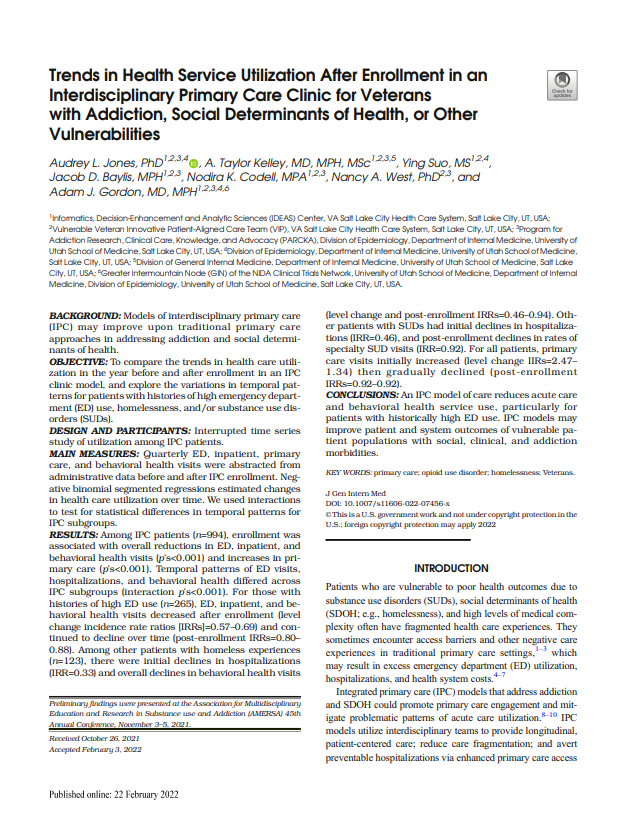Headline
Interdisciplinary primary care (IPC) models can help reduce acute care use for individuals with histories of high emergency department (ED) use, homelessness, or substance use disorder (SUD).
Context
Individuals with complex health conditions and social needs, such as SUD or homelessness, often encounter barriers to accessing care and negative experiences in their primary care treatment. This can result in increased use of the ED and higher health care costs. IPC models use a longitudinal, patient-centered care design and promote primary care engagement while aiming to reduce the use of acute care. This study compared health care utilization of almost 1000 veterans at a health system in Utah for the year prior to enrollment in an IPC program with the year following the program.
Findings
In the year after enrolling in an IPC, patients had fewer ED, inpatient, and behavioral health visits as compared to the year prior to enrolling. Primary care visits also increased following enrollment in the IPC. The increase in primary care utilization was mostly due to visits with non-prescribing providers, such as nurse care managers, social workers, and mental health pharmacy specialists. These visits supported needs related to SUD and homelessness with services such as SUD pharmacotherapy, naloxone distribution, and referrals to behavioral health and housing services.
Takeaways
Health systems may benefit from increasing primary care capacity to address SUD and health-related social needs in patients with complex needs, which may lower acute care use.




